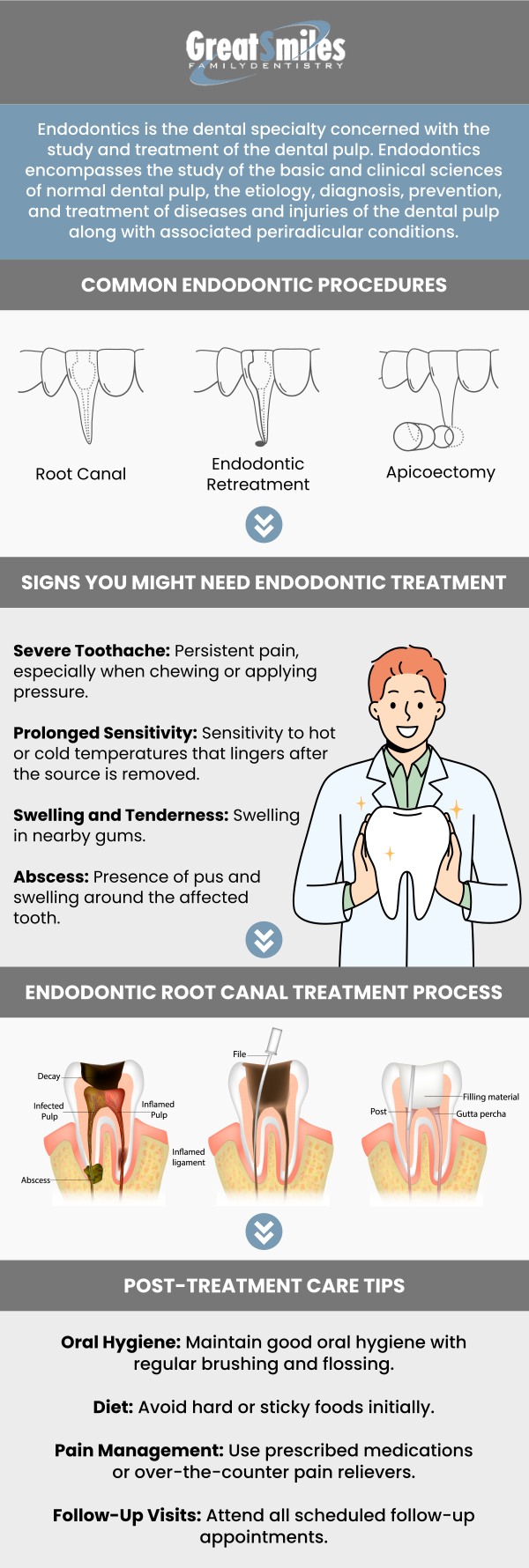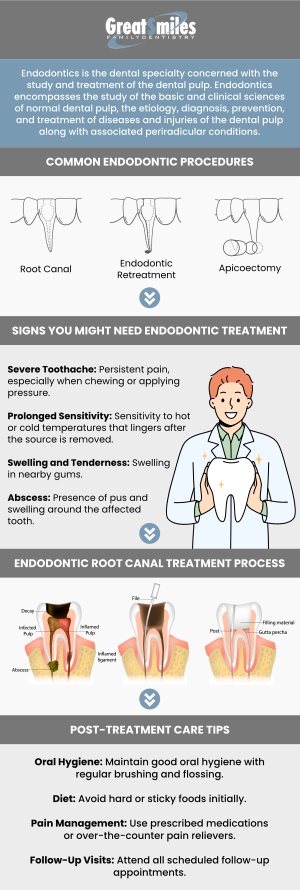What Is Endodontic Treatment and Why Would I Need an Endodontic Procedure?
There are a wide range of reasons endodontic procedures may be deemed necessary, centered around preserving a patient’s natural tooth. They can relieve a myriad of symptoms including tooth pain, restore functionality, and extend the life of a patient’s natural tooth. Top dentist Dr. Nadeem Khan DDS at Great Smiles Family Dentistry provides comprehensive and specialized care. For more information, contact us. We are conveniently located at 4646 Nantuckett Dr Suite D, Toledo, OH 43623.





Check Out Our 5 Star Reviews


Additional Services You May Need
- Affordable Dental Implants
- Invisalign
- Invisalign vs Braces
- Dental Implants
- Dentures
- Dentist
- Gum Disease
- Sleep Apnea Appliance
- Sedation Dentistry
- General & Cosmetic Dentistry
- Jaw Muscle and Joint Conditions
- Sports Guards
- Teeth Grinding
- Porcelain Veneers
- Lumineers
- Family Dentist
- Cosmetic Dentistry
- Dental Implant Costs
- Kid Friendly Dentist
- Gingivitis Treatments
- Pediatric Dentist
- Teeth Whitening
- Invisalign Clear Aligner
- Emface
- Exion
- Dental Crown
- Dental Bridge

Additional Services You May Need
- Affordable Dental Implants
- Invisalign
- Invisalign vs Braces
- Dental Implants
- Dentures
- Dentist
- Gum Disease
- Sleep Apnea Appliance
- Sedation Dentistry
- General & Cosmetic Dentistry
- Jaw Muscle and Joint Conditions
- Sports Guards
- Teeth Grinding
- Lumineers
- Porcelain Veneers
- Family Dentist
- Cosmetic Dentistry
- Dental Implant Costs
- Kid Friendly Dentist
- Gingivitis Treatments
- Pediatric Dentist
- Teeth Whitening
- Invisalign Clear Aligner
- Emface
- Exion
- Dental Crown
- Dental Bridge





